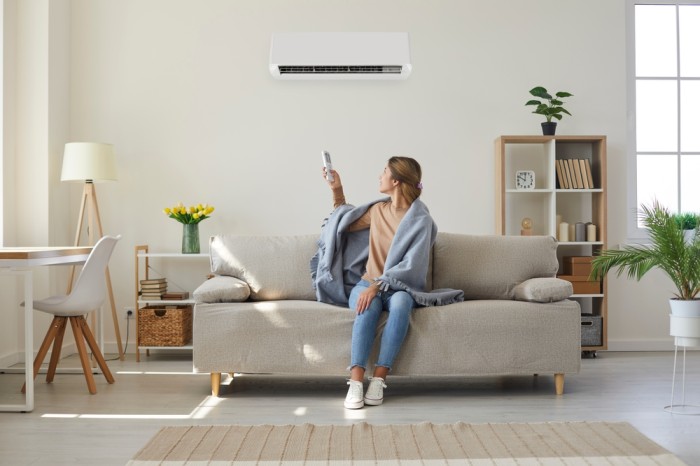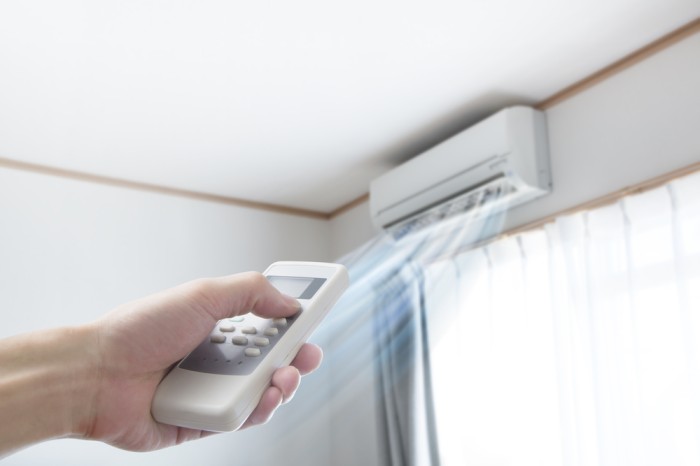
When cold weather sets in, it’s time to turn up the heat in your home, but you want to be certain you’re choosing the best system. With steadily rising utility bills and the cold months rapidly approaching, it may be worth examining how much you’re spending on your heating and whether it may be time to seek alternative means of warmth.
Whether you’re contemplating ducted heating, wall panel heaters, reverse cycle heating, or need guidance on the ideal heating element, choosing between gas or electric heating is a major decision.
This is why we’ve created this article to help you choose the right type of heating system, steer you to the best option that supports your heating requirements, and draw an evidence-based comparison between gas and electric heating costs.
Fuelled by butane, propane, liquified petroleum gas, or natural gas, gas heating systems are connected to a gas source. A valve controls gas flow, igniting heat via a pilot light or electric filament. Gas heating options include:
Generally better suited for larger spaces, gas heating comes in many sizes and shapes. Connected to the gas mains, heating is a popular option for quickly warming inside and outdoor spaces. Over 2 million Victorians use gas-based heating systems and appliances in their homes or businesses, and although Victorian governments want to phase gas out in new residential properties or build, it can still be a worthwhile option for you.
Electric heating and cooling systems pass electricity through different materials to create heat, don’t need ventilation, and require an easy installation process. Electric heating systems include:
These heating options are an excellent way for the family to stay cosy overnight and are arguably exponentially cheaper annually than relying on a gas connection. In any case, always speak to a heating and cooling professional when weighing your property requirements.From air conditioning to evaporating cooling systems, Aust Climate provides heating and cooling services to Carrum Downs, Frankston, Cranbourne, Dandenong and surrounding areas across Melbourne.

Regardless of what you’re planning to purchase, there are a few key considerations to ensure you’re investing in the best for your family space! Let’s take a look.
Although different types of heaters have their energy ratings, it is important to consider what rating is more energy efficient for your space. This can be the difference between hiked energy bills or less expensive options, saving you money for the long term.
Safety features play one of the most important roles in any appliance, especially if you have children or pets. Gas heaters can be risky–depending on whether they’re flued (allows fumes to exit the house) or unflued (traps fumes in the house)–if excess gas is leaked into a room.
It is important to consider where you want your heater installed. Whether you’re searching for a permanent heating solution or need heating for a short period, there are things to consider in terms of installation costs:
Locking in your heating costs for over a decade, a heating system is an important decision. In terms of gas and electricity costs, what can you expect with both gas and electric heater systems? The cost efficiency of gas or electricity depends on lifestyle, fuel available to you, how much space you want to heat, market rates, limitations of your property, and how energy-efficient your appliance is.
The Australian Energy Regulators’ annual retail markets report in June 2020 states gas and electricity usage prices in four major states. Victoria is 3c/MJ for gas and 36c/kWh for electricity, so overall, electricity is cheaper to run. For most Victorians, electric reverse-cycle heating systems are the most energy-saving, inexpensive option with the lowest greenhouse emissions, and rebates are available to assist with making this change. Speak to a heating and cooling expert at Australian Climate Systems for more information.
Environmental impacts of gas and electric heating systems depend on energy sources, system efficiency, emissions, and the energy policies in your area. Nowadays, many people find themselves concerned with their impact on the world’s climate. If this is a concern for you, consider the following points:
Like any regularly used household appliance, gas and electric heating have regular maintenance needs, but what should you expect?
Do you need to consult a heating installation specialist? Aust Climate offers heating and cooling services to Camberwell, Box Hill, Glen Waverley, Lilydale, and surrounding areas across Melbourne.

Whether your preference is central heating for your home or space heating for your bedroom, zoning options are excellent considerations as you can save money instead of heating rooms you don’t use.
What’s the verdict? Consider the conversion to electric heating and cooling, ideally a reverse-cycle system, as it is beneficial throughout every season. According to this article by Planning Victoria, the Gas Substitution Roadmap is guiding the state to net-zero emissions while offering broader choices and cheaper energy bills. The Department of Transport and Planning aims to transition to cleaner energy with support from the Department of Energy, Environment and Climate Action.
Since January 2024, the Victorian State Government has planned to phase out gas installations in all new homes, such as apartment buildings, new dwellings, and residential subdivisions that require planning permits. This will make energy prices more affordable, cleaner, and efficient for everyone. These requirements apply only to natural gas, not Liquified Petroleum Gas (LPG).
With this in mind, your family is still free to use gas–especially if your existing home has a gas connection–but there are more benefits to converting to electricity and even more savings if you own solar panels!
At Australian Climate Systems, we understand how Australian consumers appreciate a warm, inviting home as the weather drops. If you’re concerned about indoor air quality, installation, and maintenance costs, you should always seek professional advice on what works best for you, your home, and your lifestyle. In some
Operating in Melbourne for more than 25 years, our locally owned and operated business specialises in selling, installing, maintaining, and repairing electric heating and cooling solutions that work.
Whether you want to try Bonaire, Brivis, Daikin, or Panasonic, our fully qualified and trained technicians provide a 6-year workmanship guarantee. Contact us today for sales and installation, builders, or warranty repairs services.